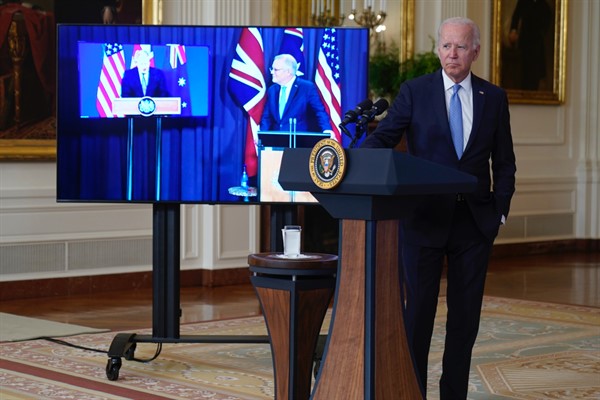Editor’s Note: This is the web version of our subscriber-only weekly newsletter, China Note, which includes a look at the week’s top stories and best reads from and about China. Subscribe to receive it by email every Wedenesday. If you’re already a subscriber, adjust your newsletter settings to receive it directly to your email inbox.
Last Wednesday, the Biden administration unveiled a historic security partnership in the Indo-Pacific region between the U.S., Australia and the U.K., known as AUKUS. As part of the deal’s terms and conditions, the United States and the United Kingdom will help Australia build and deploy nuclear-powered submarines, as well as share and cooperate on other technologies, such as cyber, artificial intelligence and quantum computing. “This is about investing in our greatest source of strength—our alliances—and updating them to better meet the threats of today and tomorrow,” said U.S. President Joe Biden in a joint virtual announcement ceremony with Australian Prime Minister Scott Morrison and his British counterpart Boris Johnson.
Though none of the leaders explicitly mentioned China or spelled out what “threats” they were responding to, China was clearly the elephant in the room. The AUKUS initiative begins with an 18-month consultation period to determine details of the submarine program and tackle other regulatory, technical and security hurdles. By 2040, Australia’s fleet of at least eight nuclear-powered submarines could patrol the South China Sea, where China has staked its claim to a vast area within the controversial “nine-dash line,” a unilateral and unrecognized demarcation of what Beijing portrays as its historical claims to the waters.

